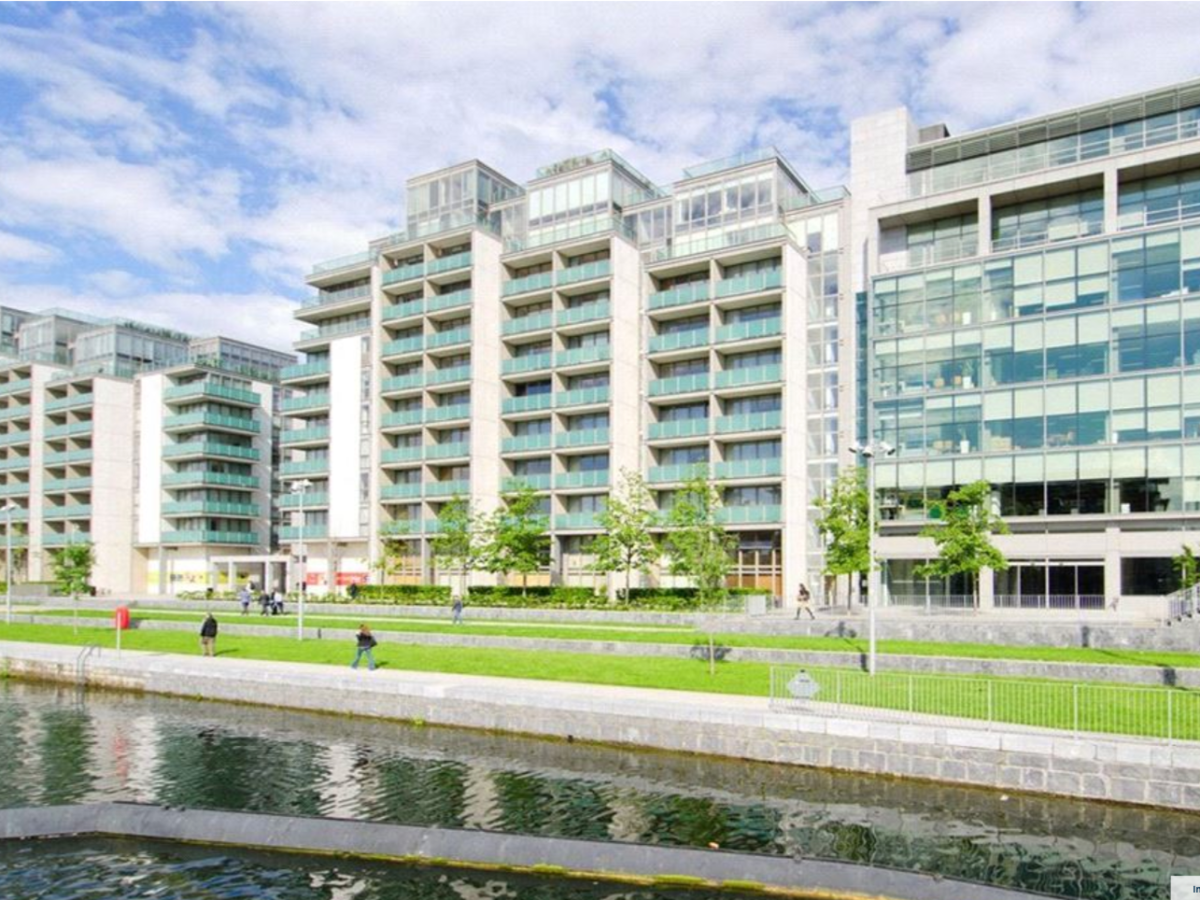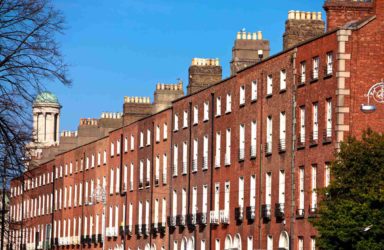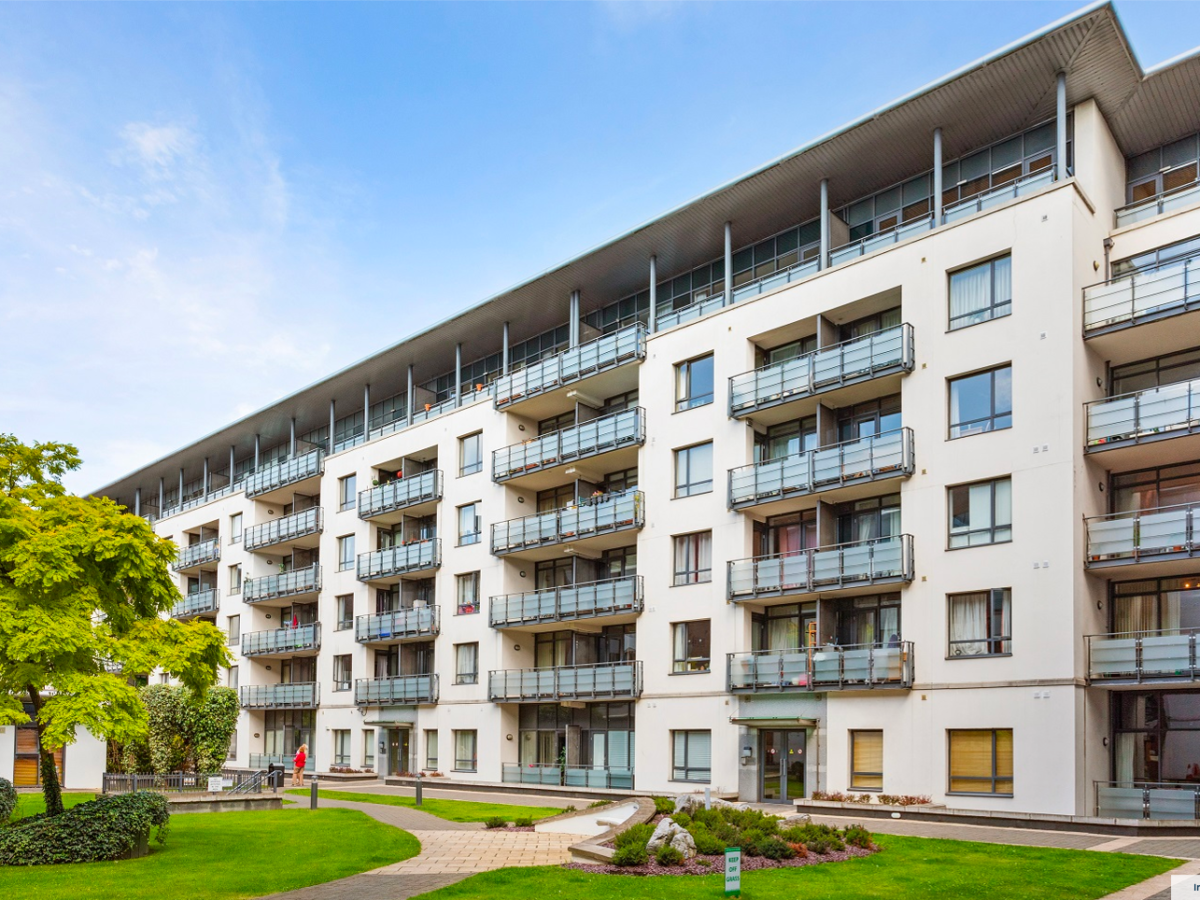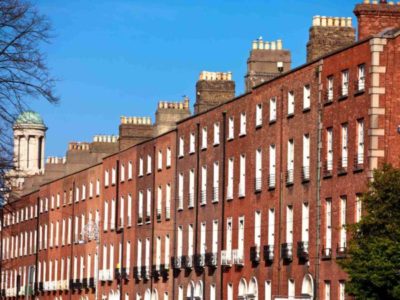
What annual running costs should an overseas investor consider when investing in a 2 bedroom apartment in Dublin city?
To ensure there are no nasty surprises in the first year, allowances should be made for operational running costs, using the most relevant information. Having a direct insight in particular developments in Dublin means highly accurate cash-flows models.
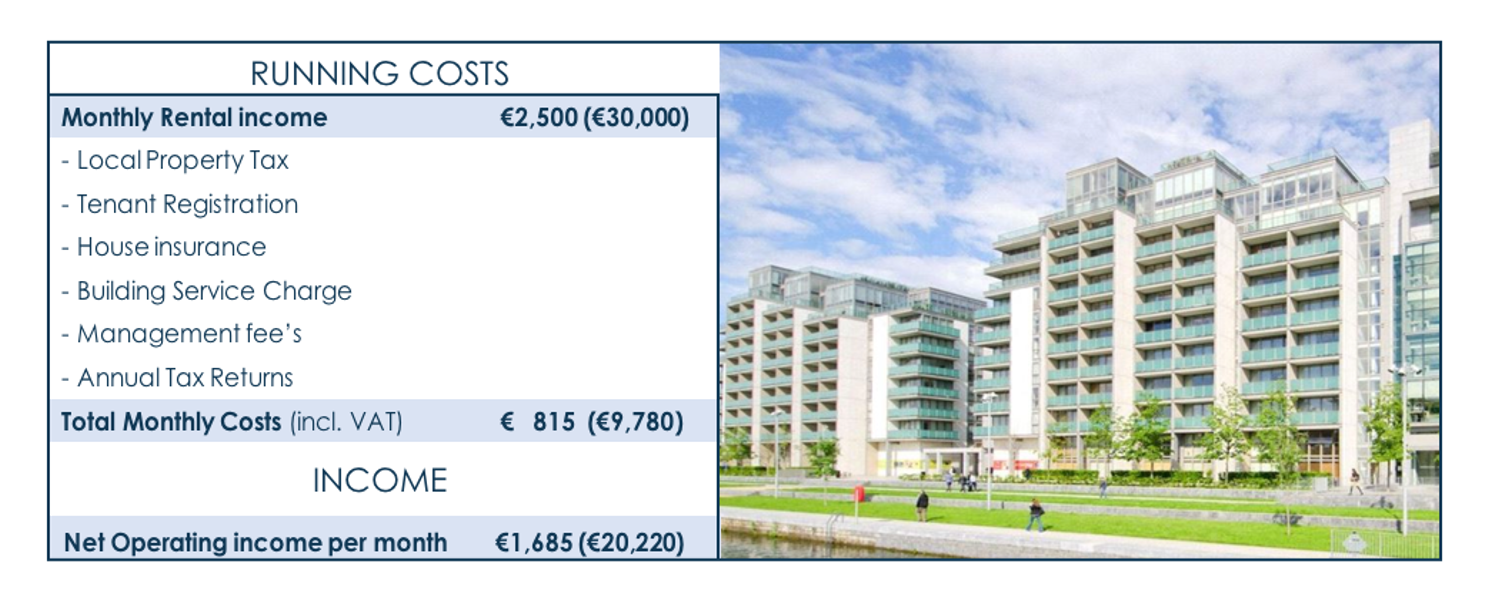
Local property tax:
The annual local property tax (LPT) is annual self-assessed tax charged on the market value of all residential properties in Ireland. The tax due is calculated via a system of market bands.
Tenant Registration Fee:
It is a legal requirement that landlords must register tenancies with the Residential Tenancies Board (RTB). €90 per tenancy provided the completed application to register is received by the RTB within one month from the tenancy commencement date.
House insurance:
Apartment insurance will vary from property to property but we have budgeted €300pa (€25/month) for this type of property. The tenant will usually have their own contents insurance and the landlord will have a special ‘buy-to-let landlord insurance policy’ covering any accidental damage inside the apartment. Structural damages to the apartment and the common areas are usually covered by the buildings insurance which is included in the separate building service charge.

Building Service Charge:
The service charge is paid to the Management Company which is set up specifically to manage the apartment blocks. Each year the Management Company decides the budget for the year and agrees what services it intends to provide during that year. We have budgeted €2000 (€166/month) for this property but building services charges can range from €2000 – €4000 per annum depending on the standard of luxury and the services required. Depending on your development, your management fees may pay for:
- Repair and maintenance of common areas, car parks, footpaths, roads. Cleaning common areas, windows, carpets/mats, gutters and drains
- Lift repairs and inspections
- Electricity and lighting for common areas
- Landscaping and gardening, pest control
- Security – internal locks and doors, intercoms, external doors and gates
- Safety – smoke alarms, fire extinguishers, health and safety inspections
- Refuse collection and recycling
- Professional charges (for example block/building insurance, public liability insurance, the OMC’s legal/auditor fees)
Management Fees:
Included in this fee is 10% of the monthly rent for property management and tenant management which is usually provided by an outsourced PRSA approved property management company.
Spire will charge a monthly investment management fee of €150 + vat which includes:
- Manage the appointed local property management company
- Review maintenance requests & quotes
- Manage monthly cash-flows receivables and payable. Ensure all rents are maximised at market level where legally possible.
- Manage the accountancy firm and ensure local property, VAT and company taxes are paid
- Ensure compliance with all local regulatory authorities e.g. RTB (Residential Tenancies Board).
- Prepare Bi-annual Investment Reports & manage regular pay-outs to investor (subject to liquidity)
- Act as first point of contact for: Letting agents and property managers, Maintenance Companies, Renovation and construction companies, Investors, Irish Companies Registration Office, Irish Revenue office (tax authorities), Legal advisor, Company accountants & tax advisors
Annual Company Tax returns:
If you receive income from rental properties in Ireland, then you must file a tax return. We have estimated a cost of €1500pa plus vat (€125/month plus vat) for accounting and annual tax returns.
If you are thinking of investing in property as a source of alternative income,
why not contact us today to discuss your requirements in more detail?
Phone: +353 86 325 0048 I Email: info@spirecapital.ie

